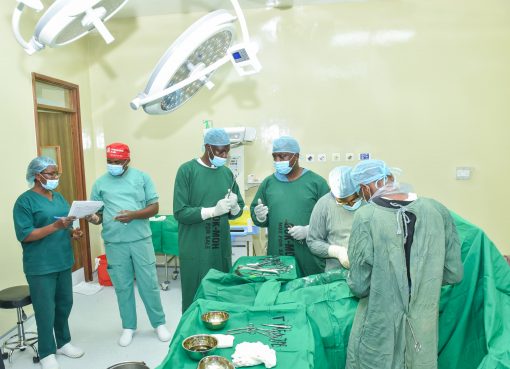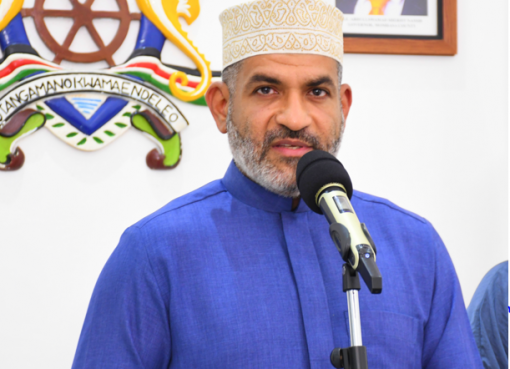Residents of Nakuru are set to benefit from enhanced access to clean and improved sanitation services after the devolved unit announced that upgrade and expansion of the water and sewage system would kick off soon.
Governor Susan Kihika said the upgrade dubbed the ‘The Lake Nakuru Biodiversity Conservation Project’ which will start in a couple of months will be funded through a Sh5.6 billion grant from the German Development Bank.
Kihika indicated that one of the highlights of the mega project will be the decommissioning of the 63-year-old Kaloleni Waste Water Treatment Plant, which will be phased out and its waste directed to the upgraded Njoro Treatment Works, which has the capacity to process 20,000 cubic meters of water per day.
In a statement outlining her scorecard for the past one year, the governor affirmed that the project will involve expanding the water supply network and upgrading the aged water supply and dilapidated sewerage treatment system. It will also focus on cleaning of water flowing into Lake Nakuru.
“The focus on cleaning water flowing into Lake Nakuru is to safeguard the water body from pollution by preventing untreated water from flowing into it. We are determined to secure the Lake’s delicate ecosystem and biodiversity,” stated Kihika.
Towards increasing access to clean and safe drinking water, the governor said her administration had drilled 60 boreholes and solarized 45 others while 23 water kiosks had been constructed and 13 springs protected across all the 11-Sub Counties.
“We have so far piped 102 water projects covering a total of 407 kilometres, distributed 43 water tanks with a combined capacity of 1,580,000 litres and enabled 77,500 people from 15,500 households to benefit from the initiative,” she added.
The Lake Nakuru Biodiversity Conservation Project’ will encompass increasing water supply through new boreholes, rehabilitation of water reticulation systems and revitalization of pipelines, optimization of existing well fields and construction of water reservoirs.
The five-year project will be implemented by the Central Rift Valley Water Works Development Agency jointly with the Nakuru County Government.
The sewer network will be expanded and rehabilitated to handle more waste water.
“We intend to expand the sewerage system to various estates in Nakuru city which have for long been relying on alternative methods of waste disposal, including septic tanks. We will also upgrade our two existing treatment plants in Kivumbini and Mwariki,” added Kihika.
She said expansion of the over 60-year-old sewerage system will come as a relief to residents who for decades have had to contend with a dilapidated system, already bursting under pressure due to population growth
Only Milimani, Langa Langa, London, the town centre, Racecourse and Freehold estates have access to sewerage services.
A significant number of estates in the city, including posh ones, are not linked to the sewer system. They include Bismarck, Kenya Industrial Training Institute (KITI), Kiamunyi and Ranges View, which adjoins the affluent Milimani.
Others that are not connected to the main sewer line include Ngata, Mwariki, Baruti, Langa Langa and the informal settlements of Kivumbini, Lake View, Kwa Rhoda, Kaptembwa, Kaloleni and Bondeni.
Residents in these estates rely on septic tanks. When their septic tanks are full, they hire exhausters which charge between Sh2, 000 and Sh3, 000 per trip to take out their waste to the main sewer treatment plant.
In virtually all these estates connected to the old sewerage system the sight of raw sewage is a common sight with sewer lines sometimes bursting and leaking, putting residents at risk of contracting diseases.
Kihika observed that the upgrade of the sewerage system is set to reduce the impact of overloading that leads to leakages adding that since Nakuru had attained city status sanitation had to be given priority in terms of having clean water and a proper sewerage system.
Under the project, the devolved unit will revamp the sewage system, to increase its coverage in Nakuru East, Nakuru West and other areas that were incorporated into Nakuru City.
To improve sanitation, Kihika said they had rehabilitated and connected three toilet blocks to the sewerage line at Flamingo Ward within Nakuru East Sub-County.
“Each block comprises 22 toilets with each unit serving two to three households. An estimated 150 households are benefiting from this project,” she stated.
To improve water project managements, the Governor pointed out that they were transferring community water projects to Water Service Providers (WSPs) owned by the devolved unit namely Nakuru Water and Sanitation Services Company (Nawassco), Nakuru Rural Water and Sanitation Services Company (Naruwasco) and Naivasha Water and Sanitation Services Company (Naiwascco).
She said the aim was to enhance efficient operations of water projects and minimize interruptions associated with community water projects.
The WSPs have since taken over management of Kabatini, Limuko and Amos water projects in Bahati and Mzee Wanyama water project in Nakuru East.
By Anne Mwale





